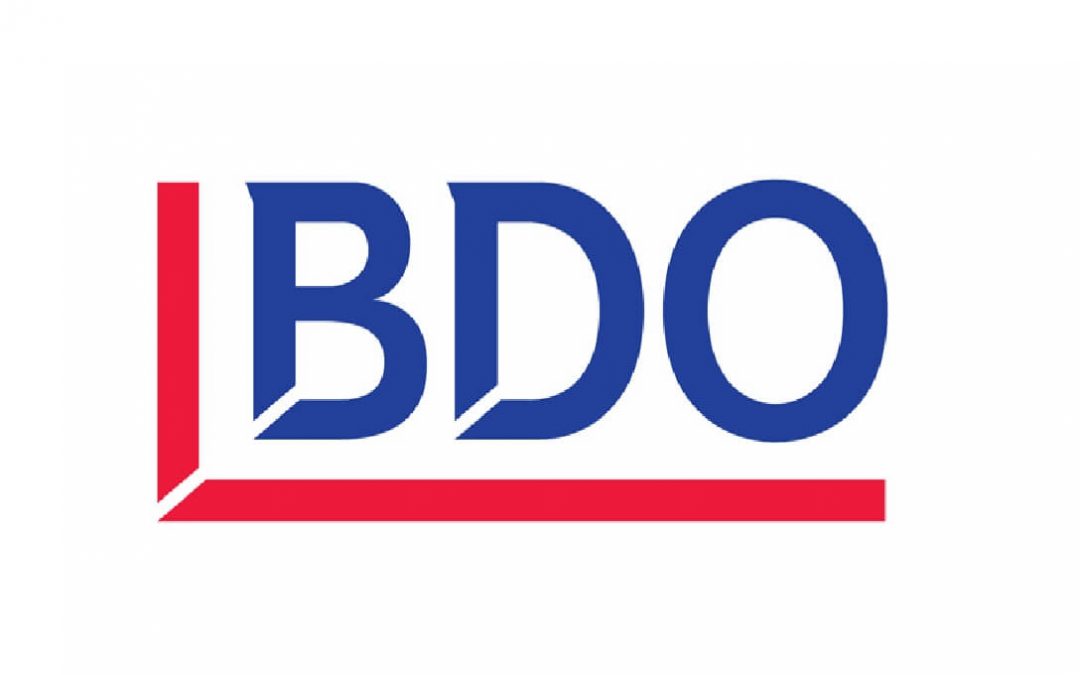Disruptive technologies like AI and blockchain are revolutionising auditing and rendering obsolete the outdated notion that accountants are mere number crunchers, writes Chris O’Flaherty, Junior Technology Analyst at BDO Financial Services.
Auditing is not a profession one historically associates with technological disruption but much like the rest of the business world, the sector is being revolutionised by the smart new technologies of the Fourth Industrial Revolution.
Technology market research firm Technavio expects IT spend by global audit firms to increase by USD2.84bn between 2020 and 2024 as the profession embraces new technologies to improve its service offering. Among the disruptive technologies that stand to transform the profession are Radio-frequency Identification (RFID), Quantum Computing, Blockchain, Machine Learning, Artificial intelligence (AI) and the Internet of Things (IoT). If leveraged strategically, these tools could not only make audits faster and more efficient, but smarter as well.
The advent of cloud computing and cloud storage means audit firms can now integrate their systems with those of their clients to allow for fast, seamless data transfer. This also allows for virtual or remote auditing, which can save valuable time and reduce travel costs. Previously repetitive, manual tasks are also increasingly being automated. For example, instead of deploying dozens of junior audit clerks to warehouses to count stock, a process that can take days or even weeks, RFID technology enables stock takes to be completed remotely in a matter of minutes. It also improves accuracy by drastically reducing the chance of human error.
Auditing firms are even turning to drones to enhance the speed and accuracy of their audits. These unmanned aerial vehicles (UAV) are particularly suited to audits of sectors like agriculture or mining, where operations are often geographically dispersed and have inherent health and safety challenges. Drones equipped with digital imaging technology can collect detailed images of coal reserves, crops or grain silos. This information can then be fed into advanced data analytics software to calculate the precise value of the commodity being measured. Drones can also be used on construction sites to calculate a project’s cost-to-completion. They also offer significant potential for use on environmental audits, automotive manufacturing plants, logistics hubs or large warehouses such as e-commerce fulfilment centres.
The IoT will play a significant role in the integration of these new technologies into singular, seamless systems that can be accessed via the cloud to add greater value to audits. Cloud storage allows for huge datasets to be collected, which can then be harnessed using AI or machine learning software to identify industry or geographic trends. The ready availability of very large datasets, along with the advanced analytical tools needed to parse that data, gives audit professionals the ability to scenario plan or stress test client operations using predictive accounting models. Moreover, this can be done virtually.
AI and machine learning software can also be used to trawl through vast tracts of data to enhance audit firms’ fraud detection capabilities. Instead of relying on sample datasets, these new technologies are able to scrutinize every single transaction or journal entry in a company’s records. The levels of scrutiny that such cognitive technology enables can instil greater confidence when granting assurances to clients or external stakeholders. AI can also be used to sift through new information from non-traditional sources like social media, blog posts or online forums to identify possible reputation risks and allow for pre-emptive action to be taken if necessary.
Blockchain is another technology that can be leveraged to verify the veracity of transactions. Since blockchain offers a secure way to record transactions it has natural application in auditors’ fraud detection arsenal. It also enables real-time auditing as the digital nature of the distributed ledger technology means verification can be done remotely or even automated. This reduces the need for manual verification of “paper trails”, which has obvious positive implications for the speed and efficiency of audits.
Of course, these new opportunities also create new challenges. Perhaps the most obvious is cyber security. With the ability to collect, store and analyse large datasets comes the ability for nefarious characters to illegally access that data for subversive purposes. No less than 72% of global IT and cybersecurity professionals surveyed by the Information Systems Audit and Control Association (ISACA), a professional body focused on IT governance, say there is a medium or high likelihood that an organisation will be hacked through an IoT device. Cyber security is therefore likely to become a central part of the audit process, which may in future require greater assurances to be granted beyond just the financial statements.
Technological advances also position smaller audit firms to compete more effectively with larger rivals. While this increased competition will most likely drive down audit fees over time, it will also encourage established players to innovate and work smarter.
All of these factors combined are likely to transform the very identity of the auditing profession. Auditors themselves will have to reposition themselves as strategic advisors who are as adept with technology as they are with numbers and regulatory requirements. The audit firm of the future will be a digital hub that embraces multi-disciplinary skills and knowledge, particularly around technology and communication, in order to optimise client service delivery. This may require a radical rethink on how young auditors are both selected and trained. Instead of just being seen as number crunchers, auditors and accountants will need to reposition themselves as problem solvers and value adding professional services consultants who can leverage the latest technology to serve client needs.
While this transition may at first glance appear challenging, it will lead to far more opportunities for both audit firms as well as the professionals who work for them. For the firm there is the opportunity to reinvent their service offering and tap new revenue streams while for the individual audit professional, it offers ever-more career opportunity in a rapidly evolving, digitally-driven workplace.


